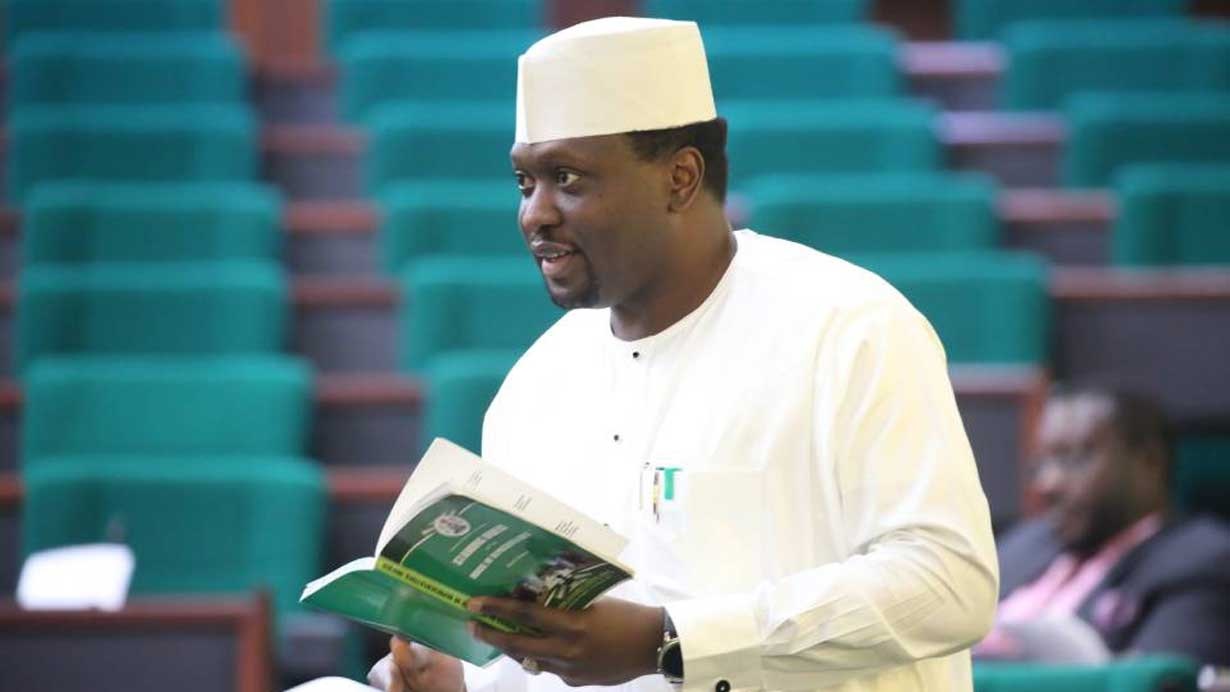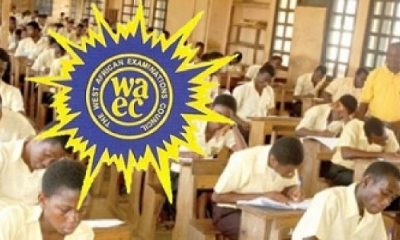News
‘Presidential System Not Working’, Reps Member Pushes For Parliamentary Democracy

A member of the House of Representatives, Abdusamad Dasuki, has said the current presidential democracy being practised in Nigeria is not working, and should be abandoned for a return to the parliamentary system of government operational in the country during the First Republic.
The federal lawmaker representing Kebbe/Tambuwal Federal Constituency in Sokoto State, stated this on Inside Sources with Laolu Akande, a socio-political programme aired on Channels Television on Friday.
According to him, Nigeria is in a “state of quagmire” and “like a house with a faulty foundation”, as the current system has not been able to deliver representative democracy where members of the executive arm of government, beginning with the President, are fully accountable to the people of Nigerians.
Dasuki said, “Things are not working in Nigeria, we can’t deny that fact. This (the move for parliamentary system) is not something that started with this Assembly, some of us that were in the 8th Assembly believed that there was something that was fundamentally wrong with the system.
“The system is faulty. Some will say it is the Nigerian factor, the Nigerian people and all that, but the system itself gives you so much power and power corrupts absolutely.
“Our founding fathers had the foresight to believe that Nigeria is a plural state, and everything must be pluralistic. Let’s have a situation where even if it is the elite coming together to come up with what works for us.”
Mid-February, talks of parliamentary democracy resurrected in Nigeria when a group of 60 lawmakers in the House of Representatives sought amendments to the 1999 Constitution to transition from the current presidential system to the parliamentary system of government.
The lawmakers said the transition has become necessary to reduce the cost of government in the face of dwindling revenue.
Titled, ‘The Bills Proposing Constitutional Alterations For a Transition To Parliamentary System of Government,’ the bill was sponsored by the House Minority Leader, Kingsley Chinda, and 59 others. The bill was read on the floor of the House during plenary in Abuja but has not progressed since the first reading about four months ago.
Many prominent Nigerians have since joined the call for a transition to the parliamentary system of government.
Dasuki, one of the lawmakers supporting the bill in the green chamber, said, “In our draft proposal, which is not cast in stone, we want a homegrown parliamentary system, not one copied from somewhere else.”
“For me and my colleagues, what we are proposing is that among the elected representatives (in the parliament), we have the Prime Minister and the ministers.”
He imagined a parliament where President Bola Tinubu is the Prime Minister, Atiku Abubakar of the Peoples Democratic Party (PDP) is the head of the opposition, and Peter Obi of the Labour Party (LP) is a member of the parliament as well.
Dasuki said such a parliament won’t breed unaccountable, inefficient and corrupt cabinet members as they could be recalled by elected representatives in the parliament anytime the people feel they aren’t giving their best.
Dasuki said, “We want a leader where every single day, you are on top of the situation; you are able to relate with citizens. A leader should be able to communicate and say what’s going on.”
The lawmaker said he and his colleagues in the lower chamber are proposing that the parliamentary system start with the local government election in Nigeria in 2027. He opined that the local government polls should be regularised with the general elections.
He said, “The ward councillors should elect their local government chairmen among themselves. If a chairman is not leading right, he is taken back and the councillors elect another chairman. That is the proposal. There shouldn’t be an election for local government chairmen in 2027, the same as for governors and the President. The elected representatives should elect from among themselves.”
Dasuki said after the initial reading of the bill in the green chamber, the proponents of parliamentary democracy decided to be strategic about the second reading. He said lawmakers have been visiting those who witnessed the First Republic to seek their support and advice. He said elder statesmen like Ango Abdullahi, Edwin Clark, Segun Osoba, Bisi Akande, and others have been consulted and they approved of parliamentary democracy.
News
Just in: NNPC Cuts Petrol Price Amid Competitive Moves with Dangote Refinery

By Kayode Sanni-Arewa
The Nigerian National Petroleum Company (NNPC) Limited has announced a reduction in the pump price of Premium Motor Spirit (PMS), popularly known as petrol, at its retail outlets in the Federal Capital Territory (FCT), Abuja.
According to a report by The Cable, the petrol price at the NNPC station in Wuse Zone 3, Abuja, was cut from ₦935 per litre to ₦910, signaling a slight relief for consumers in the nation’s capital.
However, the new pricing has not yet extended to Lagos, where petrol prices at NNPC retail outlets remain unchanged. This discrepancy has sparked renewed concerns over regional price variations in Nigeria’s downstream oil market.
The latest adjustment comes in the wake of an intensifying price contest between NNPC and the privately-owned Dangote Refinery. Just days earlier, on May 12, the Dangote Refinery lowered its ex-depot petrol price to ₦825 per litre, a strategic move aimed at capturing a larger share of the domestic fuel market.
The price reduction appears to be an outcome of recent high-level discussions between NNPC’s Group Chief Executive Officer (GCEO), Bayo Ojulari, and Dangote Refinery’s founder, Aliko Dangote. The meeting, held on May 9, reportedly sought to realign the relationship between the two entities and promote collaboration rather than rivalry.
Speaking after the meeting, Dangote stated, “There is no competition between us; we are not here to compete with NNPC Ltd. NNPC is part and parcel of our business, and we are also part of NNPC. This is an era of cooperation between the two organisations.”
Ojulari echoed this position during a press briefing on May 12, attributing the petrol price reduction to the recent procurement of fuel at lower international prices. He explained that the earlier surge in pump prices was due to existing stock purchased by marketers at higher rates.
“This downward price adjustment reflects our effort to respond to changing supply conditions and deliver better value to Nigerians,” Ojulari said, while also noting that more adjustments may occur as the market stabilizes.
Industry observers view the ongoing price adjustments as an early indicator of growing competition in Nigeria’s petroleum sector, especially with the Dangote Refinery ramping up its operations. Analysts believe that sustained collaboration between both players could enhance supply efficiency and potentially ease the burden of fuel costs for consumers nationwide.
News
BUNKERING: Army, Tantita Security Arrest Truck Laden with Illegally Extracted Crude Oil in Delta

A joint team comprising officers of the 181 Battalion, Nigerian Army, Oleh, and personnel from Tantita Security Services Nigeria Ltd. has arrested a vacuum truck involved in illegal crude oil extraction at Well 3, Olomoro, in Isoko South Local Government Area of Delta State.
According to reports, the truck, which previously belonged to Engr. Daniel Omoyibo, also known as Damotech, was gifted to the driver, Mr. Matthew Ojomikre, who is currently being detained at the Forward Operating Base (FOB), 181 Battalion, Oleh.
Upon interrogation, the driver confessed that his company had been contracted by Heritage Energy Operational Services Ltd. to evacuate sludge from Well 3, Olomoro. However, he was unable to provide any formal approvals or documentation authorizing the activity, as was previously the norm.
Until recently, Heritage Energy Operational Services Ltd. had consistently provided crude and condensate trucking permits to officers of the Nigerian Army and Tantita Security Services Nigeria Ltd. for proper monitoring from the loading point to the discharge location.
Officers of Tantita Security Services, in collaboration with a team from Heritage and the Nigerian Army, have collected samples from the vacuum truck for laboratory testing and analysis.
The preliminary confessional statement from the driver indicates that he illegally collected crude oil from Well 3 under the pretense of evacuating sludge from the wellheads.
Authorities have reported that the same truck has previously been involved in unauthorized crude oil evacuations within the Isoko axis.
The driver, the truck, and its contents remain in custody at the 181 Battalion Base in Oleh for further interrogation and possible prosecution.

News
AMMC Partners NUJ-FCT On Infrastructural Development

-

 News20 hours ago
News20 hours agoJust in: Another major headache as 3 PDP senators defect to APC
-

 News20 hours ago
News20 hours agoCourt Jails Two Six Months for Naira Abuse in Lagos
-

 News22 hours ago
News22 hours agoUnion seals Lagos company over racial discrimination of workers
-

 News20 hours ago
News20 hours ago$1.43m scam: Ajudua on the run as Supreme Court orders his return to prison
-

 News22 hours ago
News22 hours agoCBN warns public against fraudsters claiming to act on its behalf
-

 News19 hours ago
News19 hours ago10 WAEC students still missing as Rivers women demand Sole Administrator’s intervention
-

 Economy5 hours ago
Economy5 hours agoCBN launches new platform, targets $1bn monthly diaspora remittances
-

 News5 hours ago
News5 hours ago19-Year-Old Candidate Commits Suicide over Low UTME Score









